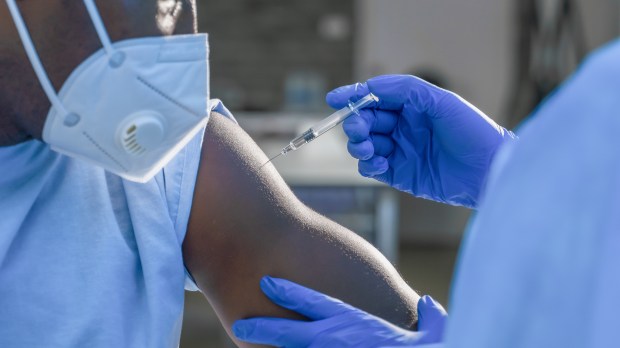According to Catholic doctrine, vaccination is an issue of conscience. So why are Church leaders putting such a big emphasis on vaccine equity?
The principles of Catholic Social Teaching offer the answer. These principles, shared by many people of goodwill, are:
- the Dignity of the Human Person,
- the Common Good,
- Solidarity,
- Subsidiarity
- and the Preferential Option for Vulnerable Persons.
With these principles of Catholic Social Teaching in mind, the Catholic Health Association of the United States has offered the following guidelines to address the obstacles to a fair and just distribution of vaccines.
- Vaccines should be demonstrably safe and ethically tested
The traditional medical admonition of Primum non nocere, or “First, do no harm,” should lead us. Broad public support requires vaccines that are shown to be safe. Additionally, the burden of testing should be borne by all, and not only some, such as those who are poor, or those living in developing countries. - Vaccines should be demonstrated to be scientifically effective
Governments and international decision-makers should follow scientific evidence, rather than rush to adopt vaccines for political or economic expediency. Maintaining public support and trust in vaccines’ effectiveness is critical for responding to COVID-19 and other public health crises. - Vaccine development must respect human dignity
The process of developing vaccines should respect the human dignity of all persons and protect the sanctity of human life at all stages. Deliberately destroying innocent human life in order to safeguard other lives is ethically wrong.[1] - Vaccines should be equitably distributed with priority to those at most risk
Once there is assurance that safe vaccines are available, distribution should first consider populations identified as most at risk for suffering negative health outcomes from COVID-19. At-risk populations will vary from place to place.In many areas, we know that elderly, racial and ethnic minorities bear the greatest burdens. State and local officials, in conjunction with health care providers and community leaders, should identify which populations are most at risk in their jurisdictions, and they should act to protect them.
The Common Good requires the maintenance of essential services for the well-being of the community. Therefore, there may be a necessity for prioritization of front line health and essential service workers so that our health care system remains able to continue to provide treatments in the midst of this pandemic.[2]
- Efforts to develop and distribute effective vaccines should emphasize the principle of Solidarity
The global pandemic requires working together, domestically and internationally, to achieve a common purpose. Through strengthening and supporting existing international organizations and frameworks for collective purchasing and distribution, we can help to ensure that all people have access to the vaccine while minimizing global and domestic competition which drives up prices for limited supplies. - Consistent with the principle of Subsidiarity, the distribution of effective vaccines should involve local communities
Local governmental entities, health care providers, non-profit organizations, religious and community leaders must work in partnership to build trust and ensure equitable distribution of vaccines. These partnerships are critical for meeting local needs, building vaccine awareness and protecting individuals and communities who are often neglected or forgotten.

